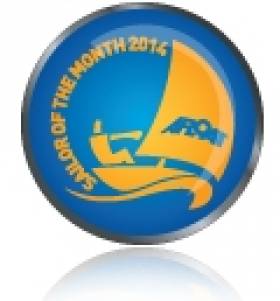Displaying items by tag: Andy Johnston
Sutton Dinghy Club's Andy Johnston is December's Sailor of the Month
#sailorofthemonth – Sutton Dinghy Club on the north shore of Dublin Bay has been a pace-setter in the revival of Irish dinghy racing and club activity generally during 2014. Commodore Andy Johnston led his members through an outstanding season in which they were once again making an impact at national and international level, while the club's training programme and sailing school under the direction of Hugh Gill was highly effective in bringing newcomers to the sport, and building up a strong esprit de corps among its dedicated team of young instructors. In addition to success in open dinghy events at all levels, SDC succeeded in regaining the historic Book Trophy for team racing from Royal Cork Yacht Club.
The trophy dates back to 1944, but for the past sixteen years the sailors of Crosshaven had kept it firmly in their grasp. 2014 also marked the 75th Anniversary of the foundation of the club at its homely base beside Sutton Creek, so the concluding highlight of the year was a 75th Anniversary Gala Dinner in mid-November in the club's home-from-home, the popular Marine Hotel at Sutton Cross. A remarkable total of 204 well-wishers and people who have distinguished sailing connections with Sutton DC from way back attended.
It was Ciara O'Tiarnaigh and her Organising Committee who looked after the nuts and bolts of this star-studded event, but throughout a long and very special season, it was Andy Johnston who led the way and held the ultimate responsibility. Nevertheless, in making him our Sailor of the Month for December 2014, we are saluting the spirit of Sutton Dinghy Club, and the resilience of all Irish dinghy sailing.





























































